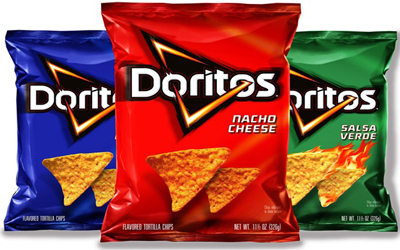Patriarchy and food: Can I please eat?
Food is one aspect of patriarchy which is mostly ignored. Around the world, women are the expected family nourishers.
A few days ago, there was a debate on Twitter regarding whether women should have lady doritos or not. The idea was put forth by PepsiCo CEO Indra Nooyi who said, “When you eat out of a flex bag – one of out single serve bags – especially as you watch a lot of the young guys eat the chips, they love their Doritos, and they lick their fingers with great glee and when they reach the bottom of the bag they pour the little broken pieces into their mouth, because they don’t want to lose that taste of the flavor and the broken chips in the bottom. Women would love to do the same, but they don’t. They don’t like to crunch too loudly in public. And they don’t lick their fingers generously and they don’t like to pour the little broken pieces and flavor into their mouth.”

Doritos then tweeted and cleared the air saying they are not coming out with any lady Doritos, after there was a huge debate on Twitter the previous day. Nooyi acknowledged the problem that women behave a certain way in public because of societal standards and thus, women oriented Doritos should be made.
Nooyi’s intention was crystal clear. Ease the procedure of crunching in public so that women can eat more without compromising on the unrealistic standards that have been put on them. But we should instead be focusing on doing away with such conservative benchmarks and encouraging women to get their hands dirty and messy because of their simple right to live and enjoy their food. The debate did acknowledge the issue of unrealistic standards of public appearance for females but if a product like Lady Doritos would have shown up on the shelves, it would have only made the gender divide deeper and more palpable. It really just told us that since we are females and there are some standards and since most of us are not able to yet enjoy our crunchy Doritos, we are thinking about lady oriented Doritos, instead of “Go and crunch your Doritos, please. Get messy. We made it for both genders alike.”
Though, PepsiCo did this the very next day and clarified that they already have Doritos for women, called Doritos.
The cruel deprivation of basic necessities of life is entirely based on societal standards of how women are supposed to be the nourishers as well as the givers
Food is one aspect of patriarchy which is ignored more often than not. Around the world, women are the expected family nourishers. So, they have to serve first and then eat last. Or make sure that everyone is well-fed. In India, the standards are more stringent because our society is more patriarchal than most contemporary societies. Here, women eat at the end. Leftovers. Sometimes because they are the ones cooking and everyone likes to eat their food hot. But most times because they have been given that responsibility without asking them and thus, they don’t get to enjoy a meal which they have prepared with hard labor. Breaking it down even further, widows are subjected to much more discrimination as compared to their married counterparts. In many parts of India, widows are not allowed to eat meat, onion, garlic etc.
Social Attitudes Research of India, in a survey, interviewed 1270 Delhi adults and 1470 female adults to know about discrimination against women. In Delhi, 35 percent men and 30 percent women admitted that females eat last in their families. In UP, 65 percent men and 55 percent admitted that men eat first. In a country where most households have a limited food budget, women eating in the end have severe implications on their health because they either get less quantity of food and worse quality of food.
This is just one aspect of it. Women have further been subjected to another societal standard of being ‘thin’ and thus, sometimes, even women who are in well-off families choose to not eat so that their weight can be kept under control. This deprivation is contemptuous and this not only deprives one half of the world to malnutrition, weight problems, diseased unhealthy life, but it also affects the coming generations. This cruel deprivation of basic necessities of life is entirely based on societal standards of how women are supposed to be the nourishers as well as the givers.
Women are now tired. And they would like to eat as much as they can, howsoever they want. And these societal standards which are collectively making the world an unhealthy, stunted, depressing place, need to be done away with.
